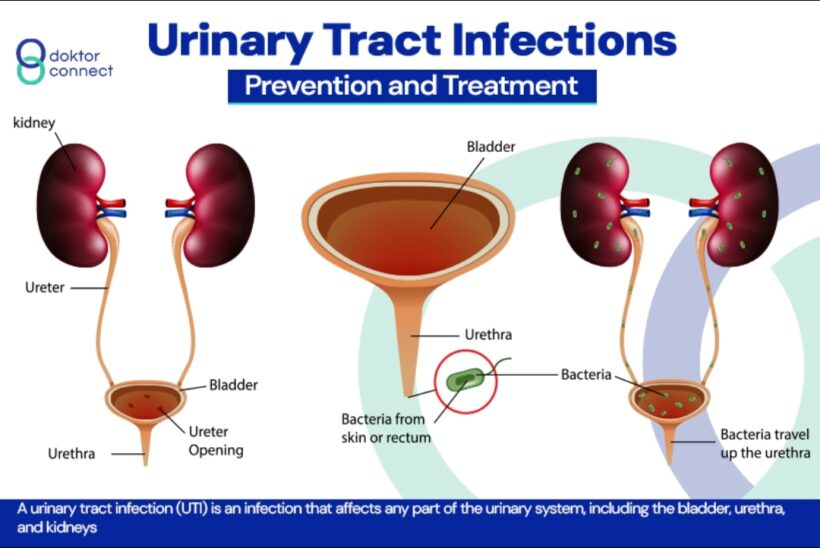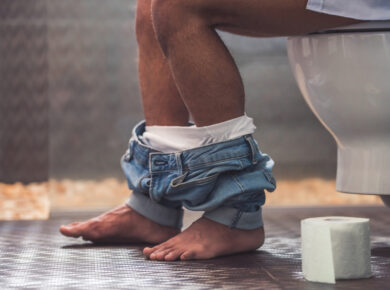UTIs: A Common Problem That’s Often Dismissed
Urinary tract infections (UTIs) are one of the most common bacterial infections, especially in women. Despite their frequency, UTIs are often brushed off as minor but left untreated, they can lead to kidney damage, sepsis, or chronic recurrence.
A UTI happens when bacteria (usually from the gut) enter the urinary tract affecting the urethra, bladder, or even the kidneys. It’s uncomfortable, persistent, and more serious than most people think.
What Causes UTIs?
The most common cause of UTIs is bacterial invasion, primarily by E. coli but other factors also contribute:
❌ Poor hygiene habits
❌ Holding in urine for too long
❌ Dehydration (not flushing bacteria out effectively)
❌ Frequent use of antibiotics (can disrupt vaginal flora)
❌ Sexual activity (especially without urinating afterward)
❌ Tight or synthetic underwear (traps moisture and bacteria)
❌ Unbalanced vaginal pH or menopause (low estrogen changes the urinary tract’s defense)
Men can get UTIs too, especially with prostate issues, kidney stones, or catheter use.
Signs and Symptoms of a UTI
✅ Burning or stinging sensation during urination
✅ Frequent urge to urinate, even if little comes out
✅ Cloudy, strong-smelling, or dark urine
✅ Pelvic pressure or discomfort
✅ Lower abdominal pain or back pain
✅ Fever or chills (may indicate a kidney infection)
If you’re experiencing fever, nausea, or back pain along with UTI symptoms, seek medical help immediately. It may have spread to the kidneys.
How UTIs Are Diagnosed
🧪 Urine Test: A quick dipstick test at the clinic can detect bacteria and white blood cells
🧫 Urine Culture: Identifies the exact bacteria and best antibiotics
📈 Imaging: For recurrent UTIs or suspected structural issues, ultrasounds or CT scans may be needed
Management and Treatment
💊 Antibiotics: Short-course antibiotics are the standard treatment. Always finish the full course.
⚠️ For recurrent infections, your doctor might recommend:
-
Low-dose daily antibiotics
-
Post-sex prophylactic antibiotics
-
Testing for underlying conditions (like kidney stones or diabetes)
💧 Hydration: Drink plenty of clean water to flush out bacteria
🌿 Natural Support (Adjunct Only):
-
D-Mannose: A natural sugar that prevents E. coli from sticking to bladder walls
-
Cranberry extract: May reduce recurrence, not a treatment
-
Probiotics: Restore good bacteria and support vaginal flora
🛁 Avoid Harsh Soaps & Feminine Sprays
-
Use gentle, fragrance-free products around intimate areas
Prevention Tips
🚺 Wipe front to back to avoid bringing bacteria from the anus to the urethra
💧 Don’t hold your pee urinate when you feel the urge
🍋 Stay hydrated urine should be pale yellow
🧼 Urinate after sex to flush out any bacteria
🩲 Wear breathable, cotton underwear and avoid tight pants
🚫 Avoid douches and scented products that disrupt natural flora
When to See a Doctor
Seek medical attention if:
-
Symptoms don’t improve within 2–3 days of treatment
-
You have recurrent UTIs (2+ in 6 months, or 3+ in a year)
-
You’re pregnant or have diabetes
-
You experience fever, back pain, or vomiting—signs of a kidney infection
Final Thoughts
UTIs may be common, but that doesn’t mean they’re harmless. Don’t ignore early symptoms or rely solely on home remedies. With the right treatment, lifestyle habits, and prevention, you can protect your urinary tract and avoid complications.
Honor your body. Catch infections early. Keep your kidneys and bladder happy





